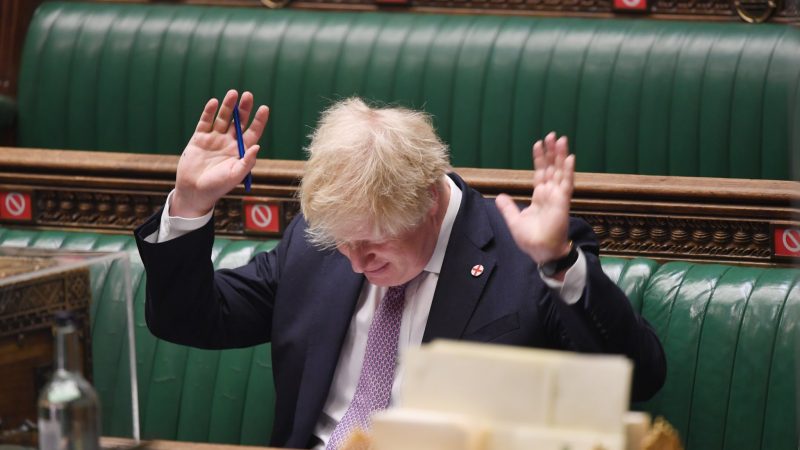
How many additional hours are workers going to have to pick up to make up for the Universal Credit cut? That is the question that Keir Starmer repeatedly put to Boris Johnson this afternoon. The Prime Minister chose not to answer. He instead described the question as “absurd”. But, as Starmer pointed out, a single claimant currently working full-time on the minimum wage – who will need to work nine extra hours a week, or an extra day – probably won’t feel the same. The Labour leader asked: “How on earth does the Prime Minister think they’re going to find the time?”
The attempt by Johnson to duck the question over hours was conspicuous. This is because acknowledging it would mean confronting what Tory ministers are diligently trying to ignore: that a large and increasing proportion of people on Universal Credit are in work. According to government figures, almost 40% of claimants are in employment. To directly tackle Starmer’s arithmetical challenge would shatter the illusion that Conservative ministers are trying to portray. “What [Labour] want to do is to continue to take money in taxation and put it into benefits. We don’t think that is the right way – we want to encourage high wages and high skills,” Johnson told parliament.
What will actually happen on October 6th is that almost six million households, many in work, will lose £20 per week. The standard allowance for a single person over 25, excluding rent, will be £324.84 per month. It will be £257.33 per month for under-25s. The Joseph Rowntree Foundation has estimated that the move will send half a million people, including 200,000 children, into poverty. Ministers are well aware of the damage the cut will cause. A recently leaked internal memo admitted that “homelessness and poverty are likely to rise, and food banks usage will soar”.
Starmer linked the cut, on which his party will force a non-binding vote later today, with the rise in National Insurance contributions announced last week, saying the “broken tax system” is the reason low-paid workers will not be able to get the £20 back. For every pound earned, the Labour leader told MPs, the government will take 75p once the rise in NICs (pushed through the Commons yesterday) takes effect. “Why is the Prime Minister making a bad situation worse for working people by hammering them with a cut to Universal Credit and a tax rise?” Starmer asked.
Labour has been quick to tie the two together since Johnson announced the levy – which has ostensibly been designed to both clear the NHS Covid backlog and fund changes to social care – as part of its critique on falling living standards. “The Prime Minister may not understand the pressures facing families across the country, but we do,” Starmer said. “The reality is this: taxes on working people, up; national insurance, up; council tax, up; energy bills; food prices; the burden on families – up, up, up.” The government need to get a grip on in-work poverty. But the Conservatives’ ideological bent means that they will continue to make devastating decisions while banging on about getting people ‘back to work’.




More from LabourList
‘Tackling poverty should be the legacy of Keir Starmer’s government’
‘The High Court judgment brings more uncertainty for the trans community’
‘There are good and bad businesses. Labour needs to be able to explain the difference’